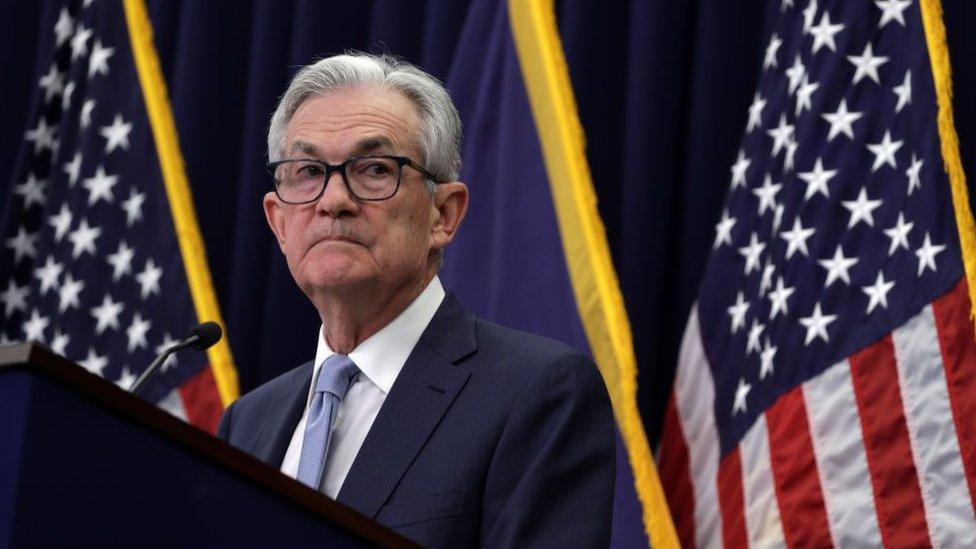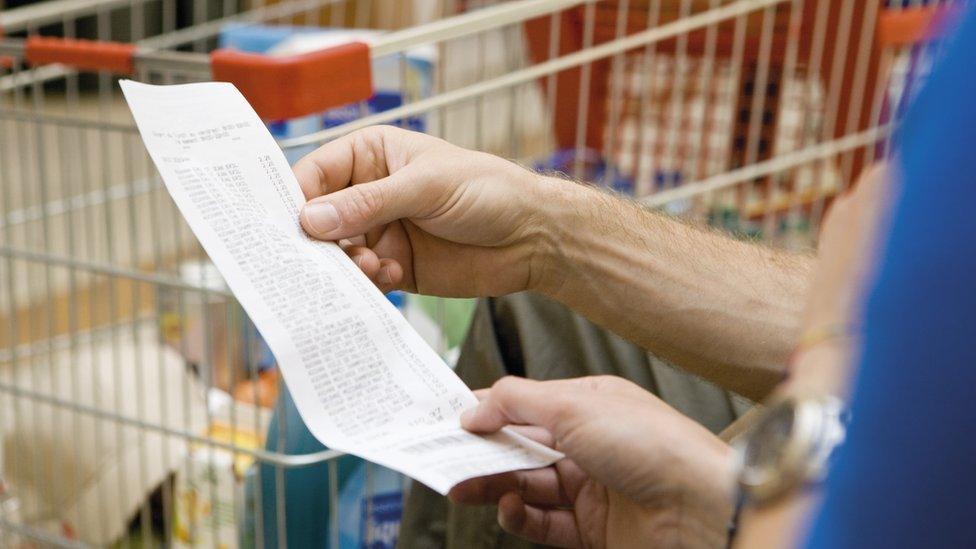Fed announces smaller rate rise as inflation cools
- Published

Federal Reserve chairman Jerome Powell says the bank wants to see how the rate rises are affecting the economy
The US central bank has raised interest rates again as it continues its fight to stabilise prices in the world's largest economy.
The Federal Reserve said it was raising its key rate by 0.25 percentage points.
That marks the smallest increase since last March, after a series of aggressive rate hikes last year.
But officials warned that they did not think they were finished raising rates, despite signs that price increases in the US are slowing.
The bank's moves are closely watched around the world as the US drives a global shift after years of low interest rates that followed the financial crisis.
The Bank of England and European Central Bank are expected to announce their own rate increases on Thursday.
The rate rise announced by the Fed on Wednesday was expected. It increases the bank's benchmark rate to a range of 4.5%-4.75% - the highest since 2007.
By pushing up borrowing costs, the Fed is trying to cool the economy and ease the pressures pushing up prices.
But officials risk triggering a painful recession, in which the economy slows so sharply that it prompts mass job cuts.
Pressure has mounted on the bank to slow, or stop, its rate hike campaign, as the higher borrowing costs hurt sectors such as housing and the US economy slows sharply.
Those voices have grown louder amid recent data showing inflation in the US dropping to 6.5% last month.
Many investors have been betting that the bank will raise rates only once more after this meeting.
But Federal Reserve chairman Jerome Powell said bank officials remained worried by data suggesting that the costs of many services - such as health care - are increasing far faster than the 2% pace considered healthy.
He said the bank would rather raise rates too high than declare victory over the problem prematurely.
"The job is not fully done," he said. "While recent developments are encouraging we will need substantially more evidence to be confident that inflation is on a sustained downward path."
In the statement announcing its decision, Fed officials said they continued to believe "ongoing" increases would be appropriate.
Projections released in December showed they thought the bank's benchmark rate could stand above 5% at the end of 2023.
Mr Powell declined to say whether officials had changed their views, noting that there was a lot of "uncertainty" about the outlook.
Stocks rose during and after the news conference, with the S&P 500 ending up more than 1%.
The market gains could be a sign that investors are gaining confidence that the central bank will be able to stabilise prices without a recession, said Jay Bryson, economist at Wells Fargo.
But Ronald Temple, chief market strategist at Lazard, said if investors get too optimistic that the rate rises are over, it may make the Fed's job harder.
"Taken together with today's report indicating near record level job openings, I believe markets remain too dovish regarding how high rates will go and how long they will stay there," he said.
"The more markets resist the Fed, the tighter conditions will have to be to tame inflation."
Related topics
- Published13 January 2023
